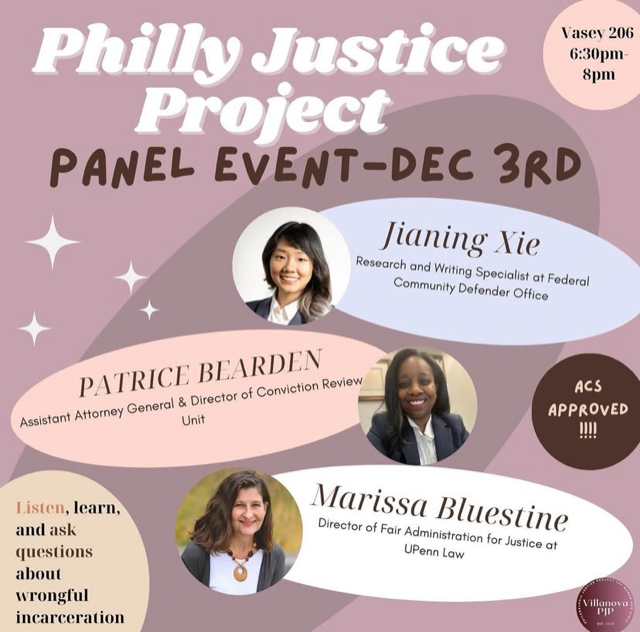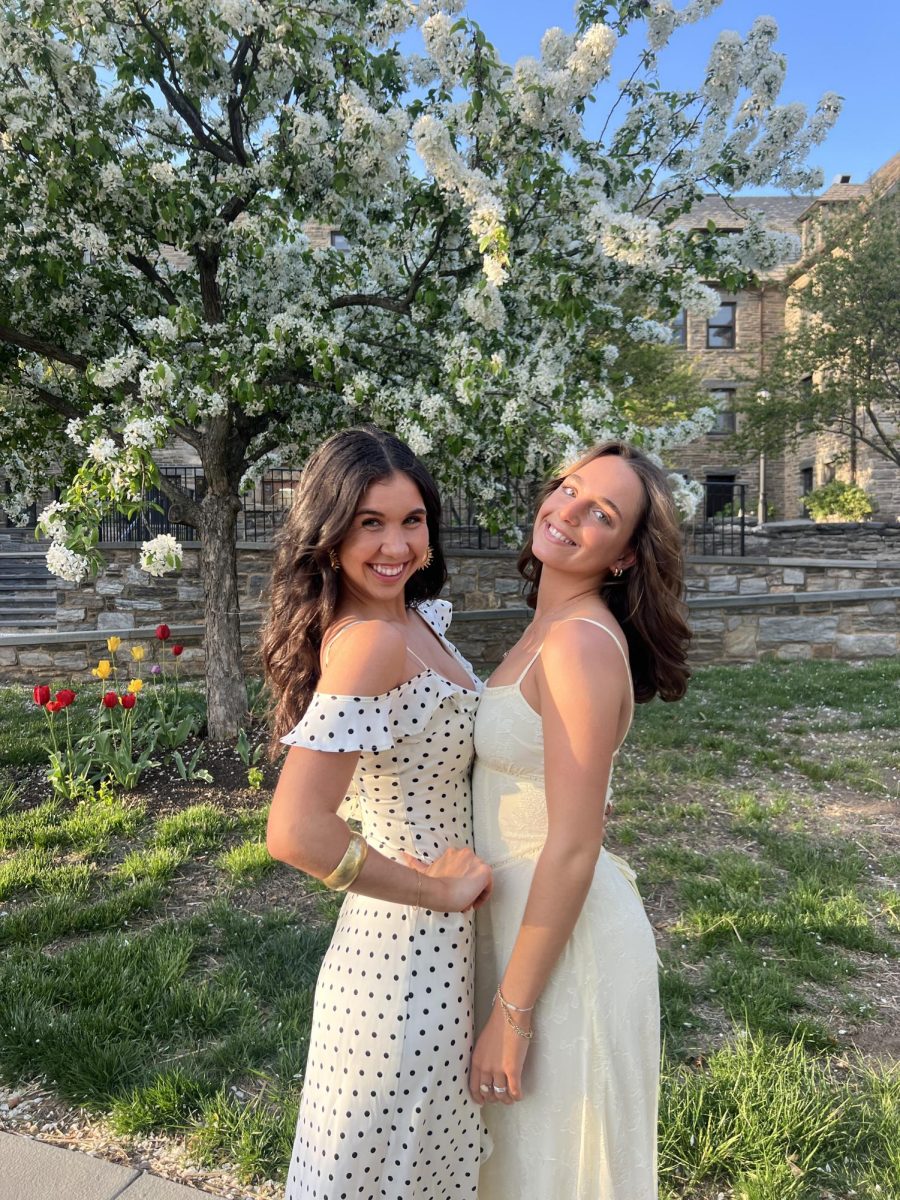“It’s not justice if we leave women & girls behind.”
Founded in 2020 by Villanova Sociology and Criminology Professor Jill McCorkel, Villanva’s nonprofit organization the Philly Justice Project (PJP) fights back against injustice concerning the wrongful incarceration of innocent women and girls across not only Philadelphia, but all of America.
The organization specifically looks at two types of cases: appeals cases and commutation cases. The former deals with cases for women who are wrongfully convicted, while the latter deals with women who are petitioning for a pardon on their sentences.
“I think the most special part about PJP is that it is run almost completely by the students and designed for the students,” PJP President Grace Akkara said. “Our mission is to raise awareness and educate our peers at Villanova to the best of our ability in order to work for a better and more just criminal legal system.”
PJP is also unique among the multitude of social justice organizations across Philadelphia in its uncommon focus on feminism.
PJP is structured into four committees at Villanova: Casework, Legislation and Research, Commutations and Operations and Development. Each group is composed of one committee chair and committee members. The PJP contains around 30 members each year and hopes to keep growing each semester.
Many of their events and educational panels revolve around how they can educate the Villanova community. Starting next semester, the PJP plans on helping some of their clients directly, which includes letter-writing events and getting involved with other groups on campus to garner more support.
It is common for young individuals in high school and college to feel that their voices are unheard when pursuing a cause. Both Akkara and PJP Vice President AK Asalu gave some advice on the matter.
“I think education is where it starts, but it cannot be where it stops,” Asalu said.
He stresses the importance of being knowledgeable about political conversations related to incarceration and the prejudice often associated with it. Here at Villanova alone, there are professionals who have worked in the field of law and justice for decades, and there are classes about psychology and criminology that any student can take.
One does not necessarily need to organize events to be an activist. If there is a letter asking for a pardon on a convict who you think deserves it, sign it. If an art show, protest or other community event catches your interest, support it.
“We live in a bubble here,” Asalu said. “A lot of students do, and a big part of it is that it’s a predominately white association.”
The important thing is to constantly be gaining new perspectives of what others face in order to become more well-informed.
“I would say that there’s always room to grow and change, and especially because there are so many panels and events on campus to expand your knowledge on a subject,” Akkara said.
For those interested in keeping up with Philly Justice Project activities, they can do so through the organization’s Instagram account @phillyjusticeproject. Anyone can reach out, anyone can join and anyone can fight for a better future.







